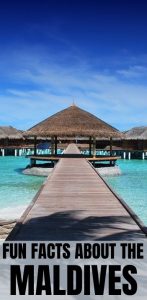Table of Contents:
Looking for a different vacation destination? You might want to consider the Maldives. For such a tiny collection of islands, they are becoming an ever bigger player in the Southeast Asian tourism market.
Even so, the tiny archipelago is often overshadowed by its larger neighbors. Let’s shine some light on the archipelago nation with these intriguing Maldives facts.
Maldives Lies On The Equator
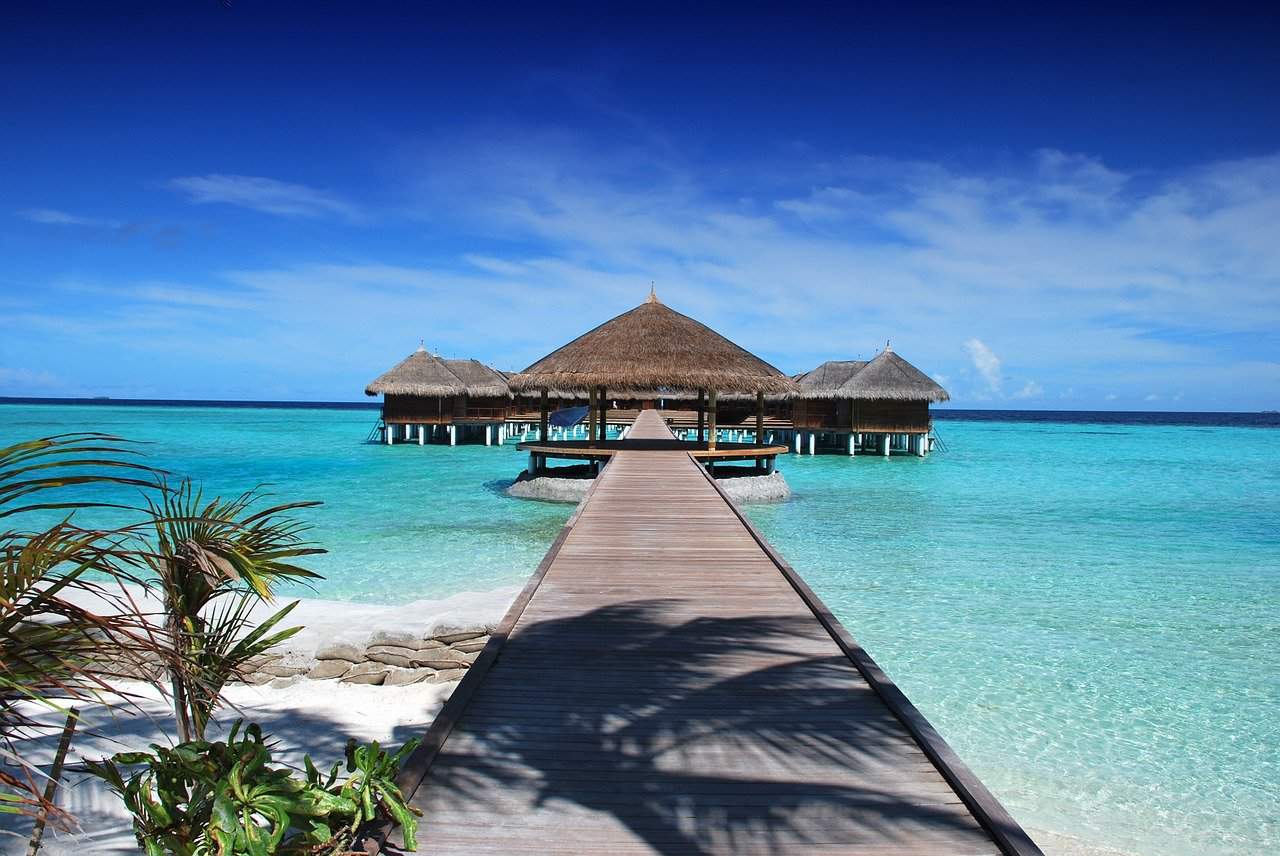
One of the interesting Maldives facts is that it’s one of the 13 countries that lie on the equator.
It became a popular tourist destination because of its tropical climate. The archipelago enjoys a tropical monsoon climate, with high heat and humidity year-round. The average temperature does not typically dip below 86 degrees, and the weather remains sunny most of the year.
That said, if you choose to visit the Maldives, you’ll want to take care to protect yourself against the sun. The Maldives are located very close to the equator, making the amount of sunlight the archipelago receives on the extreme high end. You’ll want to make sure that you’re wearing sunscreen with a high SPF rating.
The Maldives Has A Volcanic Origins
As with other islands, the Maldives is likely the result of volcanic activity in Earth’s past. The most likely explanation for their existence is the reminiscence of sunken undersea volcanoes 60 million years ago.
The coral reefs in the area are thought to have formed over the course of hundreds of thousands of years from similar remains.
The Maldives Is World’s Lowest Country
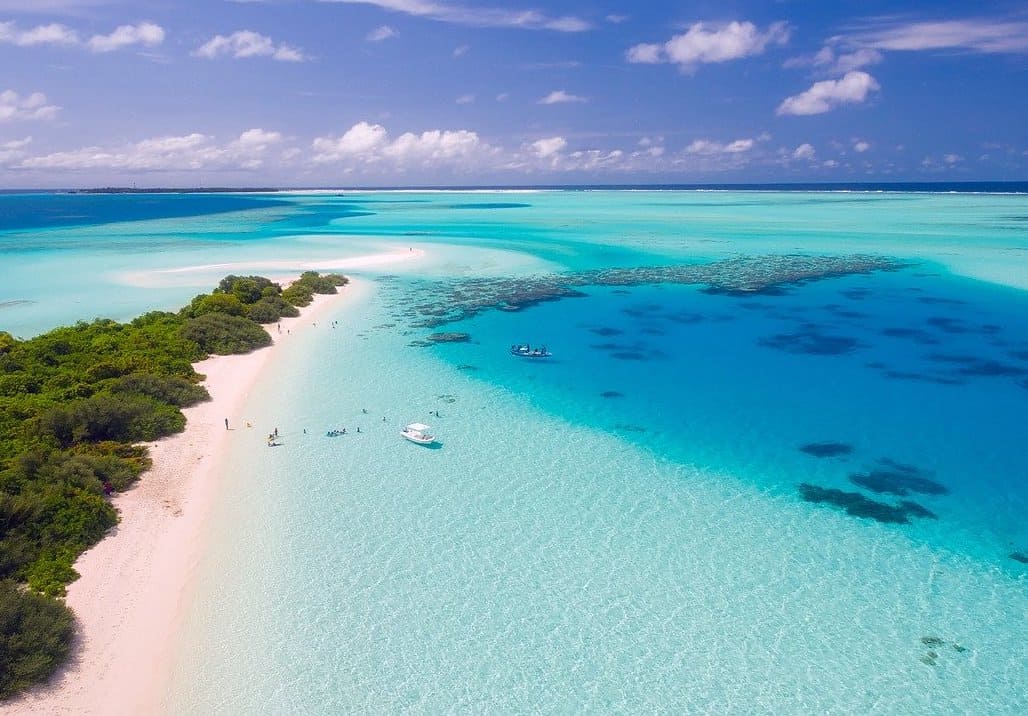
The Netherlands may be “The Lowlands,” but the Maldives is the lowest country in the world in terms of proximity to sea level. Most of the country is a mere 1.5 meters above sea level.
Like the Netherlands, Venice, the Caribbean, and other low-lying countries and cities around the world, the Maldives’ close proximity to sea level has put them at elevated risk of being severely affected by rising tides and other effects of global warming and climate change.
Combating these effects is one of the most important factors in the Maldives’ long-term future.
Another Maldives facts that are worth mentioning is that it is also the flattest country on Earth. The highest point in the collection of islands is located on Villingili Island, rising only seven feet seven inches above sea level. The average ground level across the entire country is just barely under five feet.
You Can Spot The Largest Fish In The World In The Maldives
The Maldives is located in the part of the Indian Ocean that is home to the Whale Shark, which is the largest fish in the world. Whale Sharks can measure up to 40 feet, with the largest on the record being longer than 65 feet.
Unfortunately, human activity has led to the Whale Shark becoming endangered. Fortunately, the Maldives has taken steps to try and protect this majestic sea creature by introducing Whale Shark sanctuaries. Though Whale Sharks are migratory, the Maldives is one of the few places where they can be seen year-round.
There Is A Type Of Sailboat Specific To The Maldives
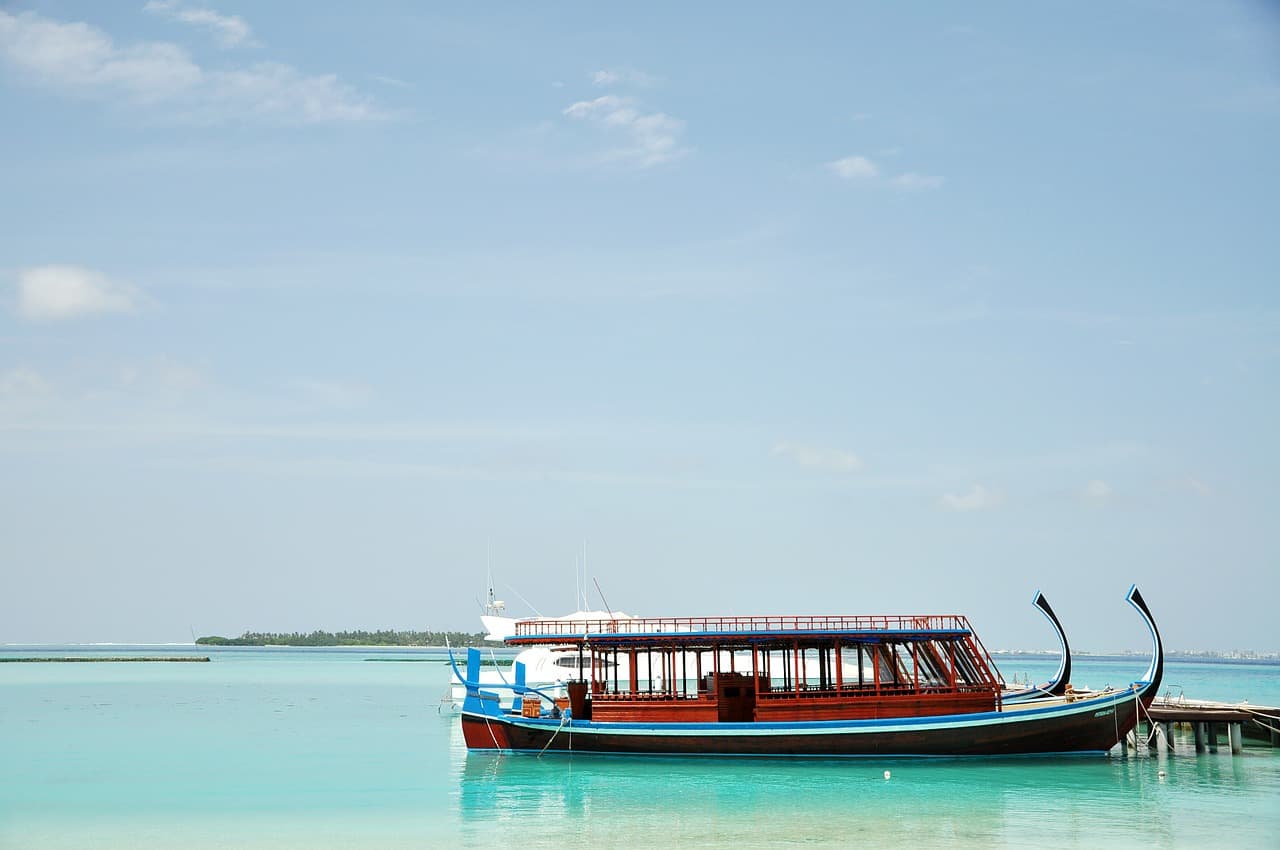
For centuries, natives of the Maldives have used a type of boat known as the dhoni. Its characteristic curved sail design may have taken inspiration from Arab dhows, which were sailing ships used by Arab traders conducting trade in the Indian Ocean in the 11th century.
Today, sailors using modern variants of these ships do not use global positioning systems (GPS) or compasses. Instead, they navigate in part by recognizing the coral reefs and using them as markers.
In The Past Shells Were Used As Money In The Maldives
Cowrie shells are extremely common in the Maldives, so much so that in the Medieval period they were used as units of currency. That legacy is reflected today in the shell designs adorning Maldivian coinage.
Most Of The Maldives’ Islands Are Uninhabited
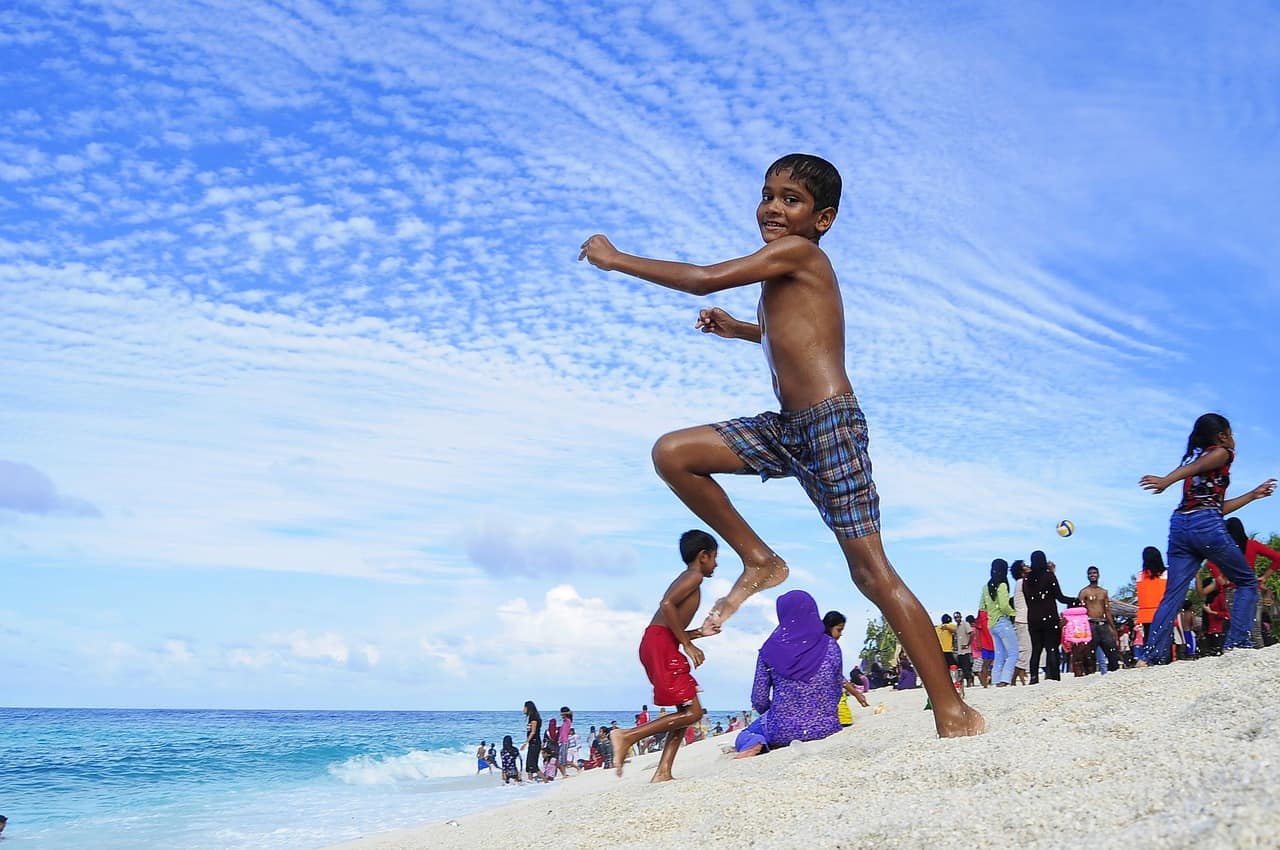
The Maldives is made up of around 1,200 islands, of which 800 are uninhabited. Two hundred of these islands are populated, while another 200 serve as host areas for hotels and resorts. The remaining islands are used for everything from jails, picnic areas, and airports to agricultural, industrial, and government projects and assets.
Many of these islands are quite small as well, with some only measuring a few square meters across. Even the largest of the islands only measures six square kilometers.
The Coconut Tree Is A National Symbol Of The Maldives
The national tree and one of the island’s most famous symbols, coconut trees, are widespread across the Maldives. They provide some much-needed shade, can grow up to 30 meters tall and can reach an age of 100 years or more.
They also have cultural significance given the fact that the wood from these trees was once used to build the aforementioned dhoni sailing ships.
You Shouldn’t Feed Fish In The Maldives
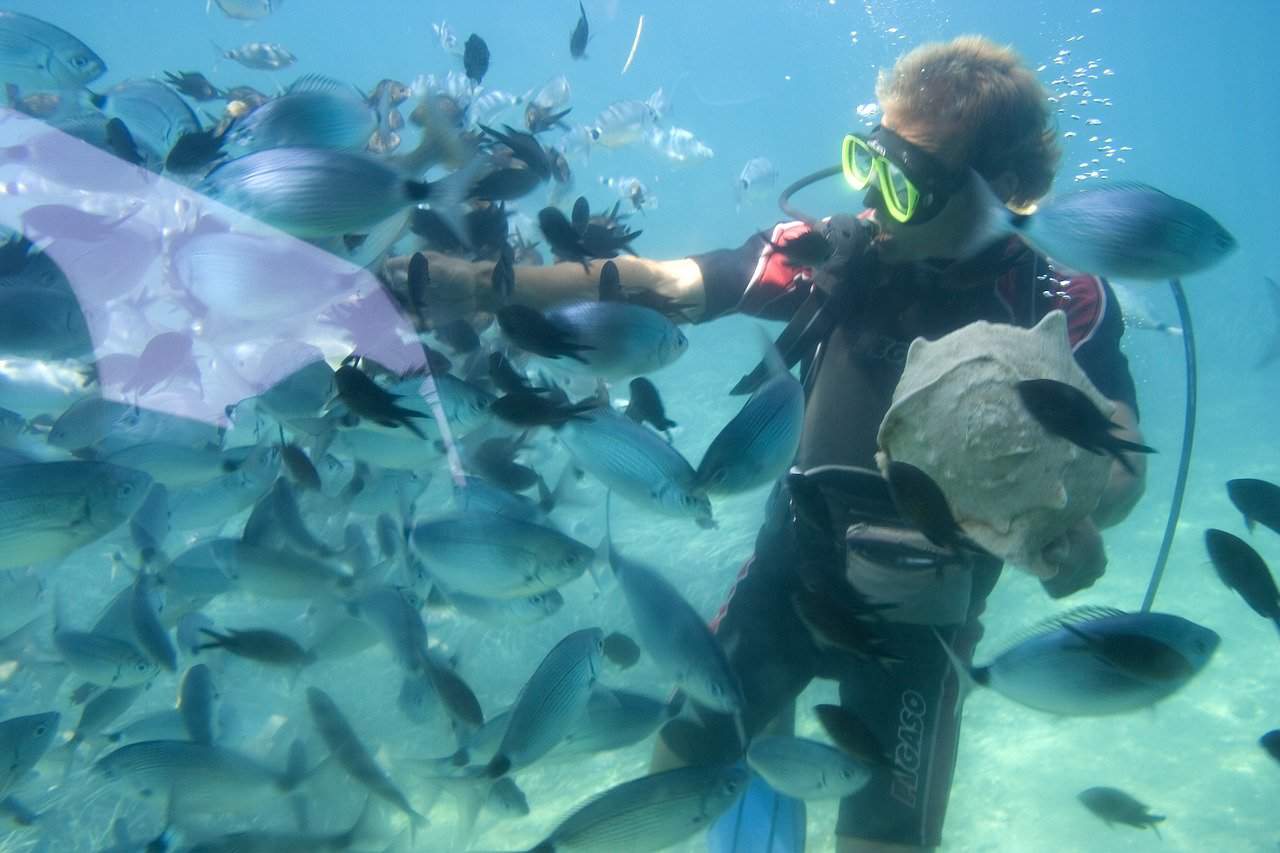
One of the popular tourist activities in the Maldives is snorkeling and scuba diving, and with good reason. The archipelago is home to some of the most dazzlingly exotic fish and sea creatures in the Indian Ocean.
That said, the fact that they are exotic wild animals makes for a problem when tourists start to feed them food such as bread, which is not part of the natural ecosystem and, thus, not part of their typical diet. Please refrain from doing this, as it can be harmful to the fish.
The Maldivian Government Had World’s First Underwater Meeting
If you have to deal with excruciatingly boring meetings at work (and who among us hasn’t?) you might suggest spicing things up the way the Maldivian government did in 2009 when they held an entire meeting underwater.
Government officials put on scuba gear, dove down into the water, and conducted the meeting as a way to highlight the importance of climate change.
Aside from the symbolic importance of the gesture, the move also made the Maldives the first country in the world to hold a government meeting underwater. They may not have much competition for that title now, but they may in the future if something is not done about climate change.
The Maldives Is The World’s Smallest Muslim Country
One of the interesting Maldives facts is that it is the smallest predominantly Muslim country in the world. Its flag is reflective of its Muslim heritage, with a white crescent moon set against a green field with a red border. The green is meant to symbolize peace as well as the native coconut tree, while the red symbolizes the bloodshed in the fight for independence.
The Muslim influence extends to social and culinary customs as well. Pork and similarly unkosher dishes are not served on the island, and neither is any form of alcohol, which is prohibited.
Instead, you might try one of the many local delicacies, including masshuni and roshi, which is made from flaked tuna, chili, lemon, and grated coconut. The ingredients are mixed together and eaten with flatbread.
The Maldives Is The Smallest Country In Southern Asia
Compared to neighboring India with its population of more than 1.3 billion, the Maldives is a tiny country, with the country’s population totaling less than 550,000. At just 115 square miles, the island nation is the smallest in South Asia by far.
You Can’t Wear Bikinis Outside The Resorts In The Maldives

Muslim influence extends to rules about modesty while bathing and swimming in the Maldives. The Maldives follow traditional Islamic codes, meaning that bikinis and similarly skin-baring clothing is considered offensive and can be met with everything from social scorn to police involvement.
The latter occurred on February 6, 2020, when a British woman was arrested for wearing a bikini on one of the beaches. Local police later apologized for the incident.
The World Atoll Is Borrowed From The Maldivian Language
English has borrowed words from French, German, Yiddish, Italian, African, Caribbean, and countless other languages from around the world.
However, English has borrowed the only word from the Maldives, “atoll,” which derives from the word “atholhu” and refers to a formation of coral islands around a lagoon.
The Maldives And Great Britain Have A Stormy Relationship
Located off the southern tip of India, the Maldives broke from Britain during the dissolution of the British Empire, gaining independence in 1965. Once they did so, the newly-formed parliament voted on whether to have a constitutional monarchy or republic, voting for the latter by a margin of 40 to 4.
With all the controversy surrounding Brexit and Britain leaving the European Union, the Maldives actually left the Commonwealth in 2016.
Other members had complained of the Maldives’ alleged human rights abuses and lack of democracy. In response to these allegations, Maldives withdrew from the union. However, they rejoined the Commonwealth on February 1, 2020.
Tourism Is The Biggest Industry In The Maldives
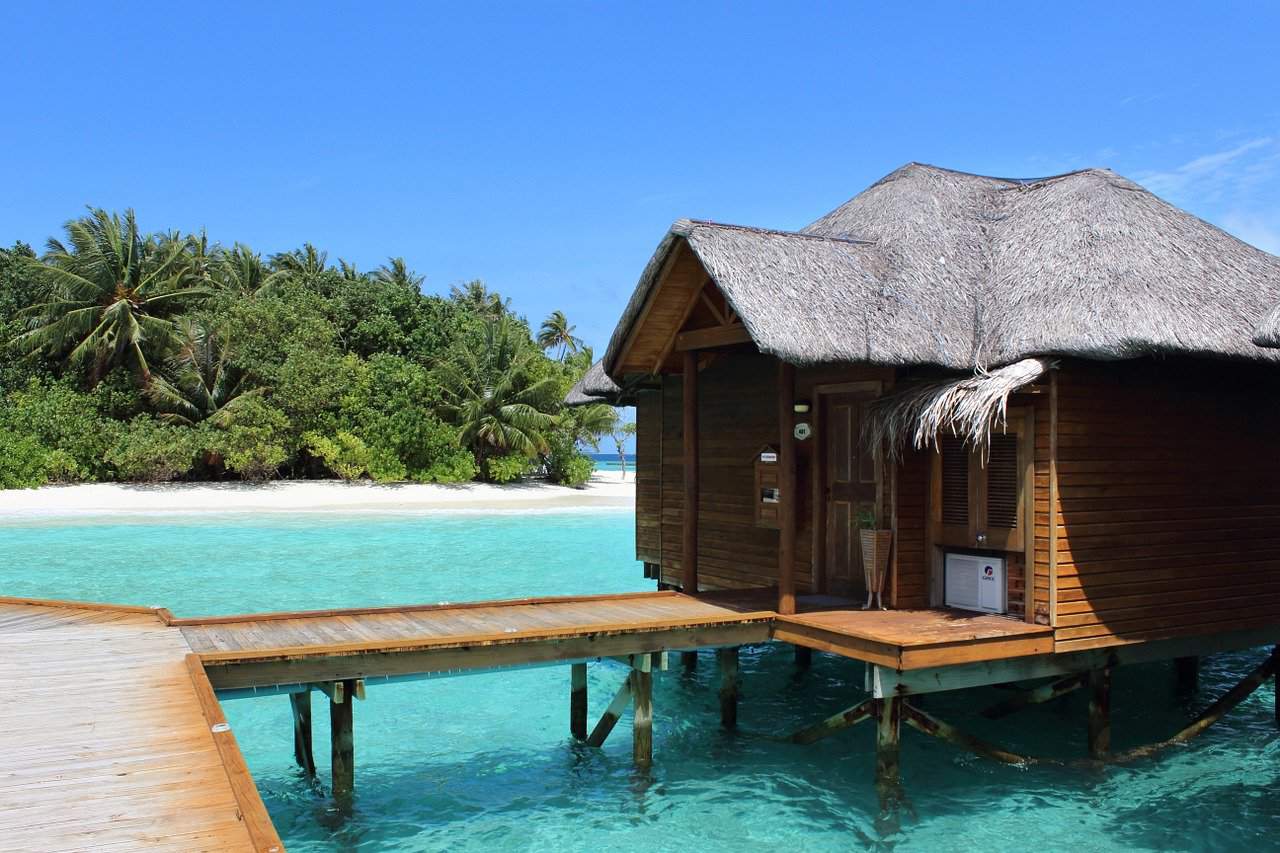
After becoming independent from Great Britain, years of infighting followed. Things began to look up economically as tourism took off in the 1970s. The tourism industry helped grow the nation’s economy by 265% in the 1980s and 115% in the 1990s. Today tourism accounts for 28% of the country’s gross domestic product (GDP).
More than 90% of the government’s taxable revenue comes from things related to tourism as well as import duties.
Some Traditional Maldivian Houses Are Made Of The Coral Reef
In the past, natives of the Maldives would use coral in home construction. However, with coral reefs under threat worldwide, this practice is now prohibited. However, you can still see some of the surviving coral homes throughout the island today.
The Maldives are a natural wonder. Under threat by rising sea levels, they are worth visiting now in case things get worse and worth saving by ensuring that they do not by siding with the locals and the growing international chorus by taking a stand on climate change.
Indian, Arabian, And African Culture Had And Influence To The Maldives
It isn’t just the Indian and Arabian worlds that have had an impact on the Maldives. Take a trip there and you may also hear Bodo Beru, which is traditional drum music originating in East Africa. The name “Bodo Beru” means “big drum.”
Pin For Later:
Do you know more interesting facts about the Maldives? Share them in the comments!

